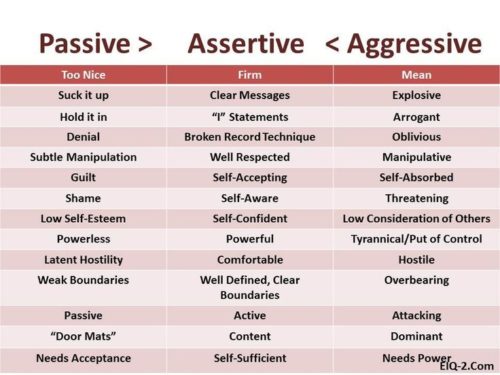
Anger is usually perceived as a destructive emotion. If we can learn how channel it constructively and use it to make healthy changes in our life and in the world, we transform our anger into power. (Estimated reading time: 6-7 minutes)
“Anger is a great force. If you can control it, it can be transmuted into a power which can move the whole world.”
— William Shenstone
Your face flushes. Your heart rate goes up. You clench your fist. Your lips are pursed and eyebrows furrowed. Your blood boils and you’re close to uttering expletives that would entail a “bleep”.
These are all telltale signs that you’re on the verge of losing it, and blowing up. Everyone has had this intense experience of anger, including a Zen monk, because it’s just part of the human experience.
We get angry when we face situations that make us feel frustrated, powerless, threatened or attacked. Although the triggers that arouse angry sentiments vary with each individual, the purpose of anger is the same, which is to alert us when something is not right and needs to be rectified.
Yet anger has traditionally been seen as a negative emotion. As kids, we learned this association when our parents punished us for throwing tantrums and being indignant. We realized that it’s better to show restraint and maintain peace than it is to be disagreeable and express our dissatisfaction.

There’s also a big cultural and gender component in how we express anger. In some cultures, it’s okay to vent your feelings (Latin countries), while in others, it’s advised to be more prudent (Northern Europe). Of course, this is only a generalization that’s meant to give you a rough overview.
Society has also made it seem more acceptable for a man to demonstrate his anger than it is for a woman. Old-school gender roles make it clear that a woman should show tolerance and reticence, no matter how she really felt.
According to these archaic beliefs, when a woman lost her temper it was seen as a sign of insolence and ignorance about her place in society, and she often had to pay a huge price for her feistiness.
But no matter how we’ve been conditioned to vent our rage, there’s no denying that we’ll all feel this intense emotion from time to time. We can’t dismiss how we feel, but we can become aware about the power of anger, and learn to deal with it. To be a whole person, we need to embrace and utilize both our light and dark sides.
Depending on how we use it, anger can either be a source of power, motivation and drive, or it can be a source of frustration, pain, and pose a major threat to our success. Like fire, it can get out of control and cause destructive forest fires or it can be a contained flame in a fireplace that provides comfort and warmth. The key to anger management is learning to express it constructively instead of destructively.

Expressing our anger in destructive ways like yelling and using hurtful and angry words, withdrawing and withholding information won’t do any good. We can ruin our career prospects, lose friends and family members, or even land in life-threatening situations. On a physiological level, we release stress hormones such as cortisol, which can lead to major health issues.
Some people choose to not express their rage and they bottle it up to the point where it becomes toxic to their system. Energy healers claim that this repressed anger will eventually manifest in the form of physical malfunctions such as aches, tiredness, high blood pressure, heart problems and even cancer.
Clearly, neither of these options is healthy for us, so it behooves us to take on a balanced approach. This starts with us being open to the wisdom of our anger and using it as an indicator that someone has overstepped our boundaries and is trying to harm us and/or our loved ones.

This “inner Hulk” that lives within us can come out any time when we’re provoked and it’s up to us to control the beast within. It takes maturity and temperance to leverage this tremendous force and use it to mobilize us into action and to push forward with our desires.
When we express anger from a centered and conscious state of being, it can be a source of inspiration and strength that can catapult us into making big shifts in our lives. Anger can override any lingering traces of fear, doubt and complacency that we may experience. It can also turn us into great advocates for causes that we’re passionate about supporting.
Anger can fuel substantial, societal changes and obliterate the status quo. When expressed on a collective level, we see huge movements and uprisings calling for change. For example, the women’s suffrage movement and the civil war were spawned from the anger of the oppressed. It was from the determined efforts of freedom fighters that justice was restored to those who were treated unfairly.
Like a skillful warrior, you can wield the sword of your fiery emotions and create something dynamic and positive. Here are five steps you can take towards achieving that:
1. Pause and breath: Thomas Jefferson once said, “When angry, count to ten before you speak. If very angry, count to one hundred.” This practice requires us to catch ourselves right before we slip into a reactive mode. Our trigger responses comes from the reptilian part of our brain that doesn’t rationalize or reason, which is why we’ll say or do the first thing that comes to mind. Pausing by counting or taking deep breaths will shift our neurochemistry and induce a calmer state of being. By taking charge of your physiology and impulses, you’ll curtail your knee-jerk reactions.
2. Find healthy outlets: Once we break the pattern of instant reactivity, we’ll need to find constructive ways to blow off some steam to get back to center. An effective ways for channeling anger is through blood-pumping physical activity such as running, boxing, martial arts, weight-lifting or any active sport. If you prefer something more subdued, you could dabble in practices such as meditation, yoga, journaling, creative pursuits, volunteer work or even cleaning the house. All these activities will give you the time and space to cool down and disengage.
3. Apply reason and logic: Once the emotional tides have ebbed, you can apply logical reasoning by dealing with facts and reasons. Think of the fictional character, Sherlock Homes, who was able to use his sense of logic in combination with his intuition to uncover mysterious cases. The reason why he was so successful is because of his ability to stay detached from his emotions when analyzing. Emotions can cloud your judgment and prevent you from seeing the whole picture. That’s why it’s important to first neutralize your emotions before you can reason.
4. Figure out your options and what’s at stake: Before communicating how you feel, it’s important to work out your options and know exactly what’s at stake. By revealing what you really feel to others, is there a chance of losing a job, a relationship or changing the dynamics of a group? Could it potentially put you into a stronger position of power, achieve a goal or earn others’ respect? Once you take both the potential risks and benefits into consideration, it will easier for to figure out the best way to construct your message so that it can have the strongest impact.
5. Express your anger constructively: Instead of allowing anger to stir up drama or suppressing it, you can choose to use its transformative power. Anger can fan the flames of justice and motivate us to contribute to growth and progress. Anger can be transmuted into love and compassion for those individuals facing atrocities and for our planet that’s threatened by environmental hazards. Think of the one injustice that really makes you mad and find creative ways to contribute. Whether it’s human trafficking, domestic abuse or child poverty, use your drive to make a difference.
Within you lies the sacred castle of your spirit. The flames of anger can engulf and destroy it, or it can be used to fortify your castle and protect you against danger. The choice is ultimately yours on whether you’ll choose to harness the flames to maintain the sanctity of your inner world or not.
All my best on your journey,
Seline

Question for you: Do you believe it’s possible to channel your anger into power? If not, what challenges do you expect to encounter while trying to do this?

Hey Seline! This was a powerful post for me personally. I have my share of demons and past anger in regards to family members and I am working on letting it go- because I know it is consuming me and killing me slowly on the inside.
Thank you for sharing this with us!
I hear ya T, J.. I feel the same. It can be so hard to deal with. It really is a challenge- just know that you are not alone!
Loving your writing Seline! This one really spoke to me.